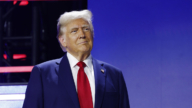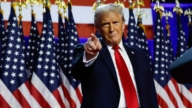【新唐人2011年10月6日讯】周一,美中两国就允许美国会计师事务所监管机构到中国进行审查的谈判,因中方代表临时取消访美行程,不得不推迟,外界认为,在诚信问题上,中国方面恐怕难以面对美方的审计。
中方的代表原定这个月访问华盛顿,进行第二轮的商讨,议题包括是否允许美国上市公司会计委员会的审计师到中国查核账目,特别是在美国上市而由中国会计公司做账的中国公司。
由于中方临时取消访美行程导致会议推迟,事发突然,中方代表之一的中国证监会官员对此并没有作出回应。
今年以来,多家在美国上市的中国公司,因传出账目不清或资产数字有误,导致股价大幅度下跌,遭到美国司法部门介入调查。特别是一些中、小规模的互联网站公司,问题尤其严重,连带相对账项透明的公司例如“新浪”及“百度”,也被投资者抛售,造成股价急挫,据媒体报导,部分原因是美国政府对这些公司的会计审计调查力度正在加大。
就在谈判被推迟的几周前,美国证券交易委员会绕过中国监管机构,直接对大型会计师事务所——“德勤”的中国子公司采取行动,要求它提供一家美国证券交易委员会正在调查的客户相关档案。
中央研究院经济研究所研究员蔡文祯:“ 任何国家的公司在美国注册或运作,本来美国就有权力作这个调查,你要调查,股票就跌,事实上是一个不好的警讯,就是为什么美国一调查,市场就会有这么大的危机反应,我觉得这才是问题之所在。”
在出现问题的中国企业中,有很多企业的审计是由中国的会计师事务所进行的,经济评论员草庵居士指出,中国社会普遍存在诚信问题,使得美方在审查中国公司申请在美国上市的过程中,无法取得相关的资料,现在美国要开始展开调查,中国公司方面的态度不是躲就是逃避。
经济评论员草庵居士:“追查之后,发现中国公司造假的情况,非常严重,非常普遍,就造成美国投资人商誉上很大的损失,诚信造成很大的问题,针对这方面,美国就遵照美国的法律,政府司法部门开始进行调查,看看这里面有没有蓄意欺诈的情况,就造成中国这些公司普遍的不敢面对这些司法问题,所以它们就 一直在躲,一直在逃避。”
草庵强调,美国司法部门的介入,实际上反映的是中国的政治问题。
经济评论员草庵居士:“(美国)司法部门介入,我相信在今后会有大量中国上市公司会爆出造假问题,表面上是经济问题,但是实际上反映的是很多政治问题,包括国家的诚信问题,其实对中国的经济会有很大的影响。”
根据《彭博社》报导,引述美国上市公司会计监管委员会一名发言人的话说,重开谈判的确实日期“尚未有定案”,但他重申:“我们仍热切期待能与中方代表在短期内重开谈判。”
至于美中双方何时可以展开第二轮谈判,商讨美国监管机构能否到中国进行审查,各界仍在密切关注。
新唐人记者周玉林、林平、孙宁采访报导。
China Postpone US Audit Inspection Of Chinese Firms
Negotiations between the U.S. and Chinese officials, giving
US securities regulators the right to investigate companies
within China, had to be postponed on 3rd October.
This is because China suddenly canceled a visit to the U.S.
Analysts believe that in terms of good faith, Chinese firms
are unlikely to face a U.S. audit inspection.
Chinese officials were scheduled to visit Washington
this month for the second round of discussions,
including issues whether allowing the auditors of U.S.
Public Company Accounting Oversight Board (PCAOB)
to audit in China. The special targets are US-listed
Chinese firms whose accounting was done by
Chinese accounting firms in China.
Chinese officials temporarily canceled the visit to the U.S.
causing the meeting to be postponed.
A China Securities Regulatory Commission officer,
one of the Chinese representatives, has not responded yet.
This year, a number of Chinese companies went public
in the U.S., but were reportedly making opaque accounting
or inaccurate assets figures, leading shares to fall sharply.
The U.S. judiciary began to conduct a probe into this.
The problem is particularly serious for some medium sized
and small website businesses.
Even Sina and Baidu, two companies with relatively
transparent systems of accounting, were sold off by investors, causing stock prices to plunge.
One of the reasons is reportedly that the U.S. regulators have
intensified probes into the accounting and auditing of these U.S.-listed Chinese companies.
A few weeks ago, the U.S. Securities and Exchange
Commission (SEC), bypassing China’s regulators,
directly asked the Chinese subsidiary of Deloitte to
provide some files of clients that are under investigation.
Tsai Wen-Chen (Research Fellow, Academia Sinica):
“The U.S. has the power to conduct a probe into
any company that has registered or operated there.
Probes into these companies can cause their
stocks to fall, which is in fact a bad warning signal.
But why does the market respond so sensitively to
the U.S. regulators’ probe? I think that’s the core issue."
Many of these questioned Chinese enterprises are audited
by the Chinese accounting firms. Cao’an Jushi,
an economic commentator, indicates that when these
Chinese businesses applied for public listing in the US,
Chinese society’s lack of credibility prevented
the U.S. regulators from obtaining the relevant data.
Now the US regulators began its probes into this area,
thus the Chinese companies either hid or avoided the probe.
Cao’an Jushi (Economic Commentator):
“The probe found the Chinese companies’ fraud
very serious and very commonplace. This has caused
U.S. investors great losses of goodwill. Accordingly,
the US Justice department started probes to find out
if deliberate fraud exists. But in general, Chinese
companies dared not face these judicial questions.
So they either hid or have been trying to avoid the probe."
Cao’an stressed that the U.S. judiciary’s involvement,
in reality, exposes China’s political problems.
Cao’an Jushi (Economic Commentator): “I believe that
the US judiciary’s involvement can help expose
a large number of fraud issues of those US-listed
Chinese companies. It looks like an economic problem,
But there are a lot of political issues in fact, including
credibility of a nation. In reality, this will naturally exert a great impact on China’s economy."
PCAOB spokesman was quoted by Bloomberg saying that
the exact date of the talks resuming “remains unclear".
But he reiterated, " We are still looking forward to
resuming negotiations with Chinese officials in the short term. “
The date of the second round of talks and whether US regulators
can be allowed to make audit inspections in China,
have been closely watched by all parties concerned.
NTD reporters Zhou Yulin, Lin Ping and Sun Ning.



























